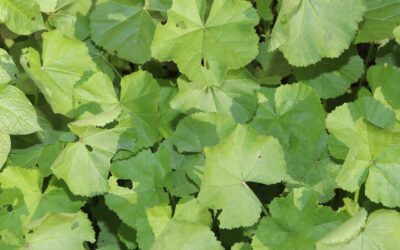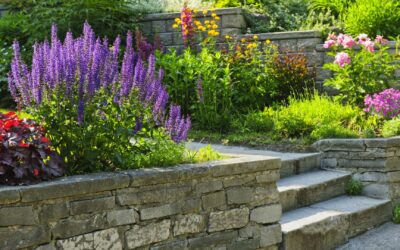Mallow weed is a common problem for commercial facility and property managers, quickly taking over landscapes if not properly controlled. These pesky weeds can be identified by their round, fuzzy leaves and small pink or white flowers. In this ultimate guide, we'll...
Recent Posts
The Landscaper’s Guide To Plant Growth Regulators
Landscapers often struggle with controlling plant sizes and health. Plant Growth Regulators (PGRs) are organic compounds that modify plant growth. This article will guide you in using PGRs to solve common landscaping challenges. Read on for a landscaper's guide to...
How Lawn Pest Control Enhances Overall Landscape Health
According to recent research by the University of Princeton, lawns account for over 40 million acres of American land today. Maintaining a lush, green space is more than just a matter of aesthetics; it's about creating a healthy, sustainable outdoor environment. One...
Healthy Plants
When managing a property, you need the most cost-effective and efficient method to keep long-lasting healthy plants for your commercial property. There are several materials available to protect your plants and conserve moisture. From decorative rocks to mulch to soil, there are pros and cons of each one. Here at Sunrise Landscaping, we’ll dive into the details on choosing the right material for your next landscaping project to ensure long-lasting healthy plants.
Mulch
Although mulch comes in several styles and compositions, pine bark mulch retains the most moisture. Its dark brown color contrasts well with evergreens and perennials. Using the finer, shredded bark gives your plants more protection from invasive weeds than the thick bark chunks that allow more sunlight to filter through. Mulch conserves water by trapping moisture and insulating your plants to keep them warm in winter and cool in summer.
Although it’s cheaper than other materials, you will need to replace mulch every season. Mulch breaks down quickly leaving your plants exposed to the elements. Additionally, if you have problems with high winds, the top layer will blow away.
Soil
If you’re looking for something more cost-effective, keeping your plants unprotected is the cheapest option. You’ll spend more time on weed control, erosion repair, and plant replacements. However, one thing to keep in mind is that when it rains, soil can easily wash away leaving your plants exposed. The same goes for the heat, the sun can dry out the soil causing the plants to dehydrate. Although soil is more cost-effective, it can still be damaging to plant survival.
Decorative Rocks
Adding decorative rocks is an attractive way to accent your plants. Although stones are more expensive than mulch, you don’t have to replace them often. However, the sun causes them to heat up making it a difficult environment for plants to thrive. Decorative rocks are ideal for windy areas but offer less protection from heat-loving weeds. Succulents work best in rocks because they’re heat tolerant, and don’t need as much exposure to moisture.
Of the three materials, mulch is the best material for creating the best conditions for plants’ survival. It’s less expensive than rocks and offers the best protection from weeds and weather. When you’re looking for your next landscaping project, you can rely on Sunrise Landscape. We provide award-winning care of your properties with our team of expert arborists, horticulturalists, and other landscapers. Contact us today to see how we can partner together.
Contact Us
"*" indicates required fields
Recent Posts
Mallow Weed Control: The Ultimate Guide
Mallow weed is a common problem for commercial facility and property managers, quickly taking over landscapes if not properly controlled. These pesky weeds can be identified by their round, fuzzy leaves and small pink or white flowers. In this ultimate guide, we'll...
The Landscaper’s Guide To Plant Growth Regulators
Landscapers often struggle with controlling plant sizes and health. Plant Growth Regulators (PGRs) are organic compounds that modify plant growth. This article will guide you in using PGRs to solve common landscaping challenges. Read on for a landscaper's guide to...



